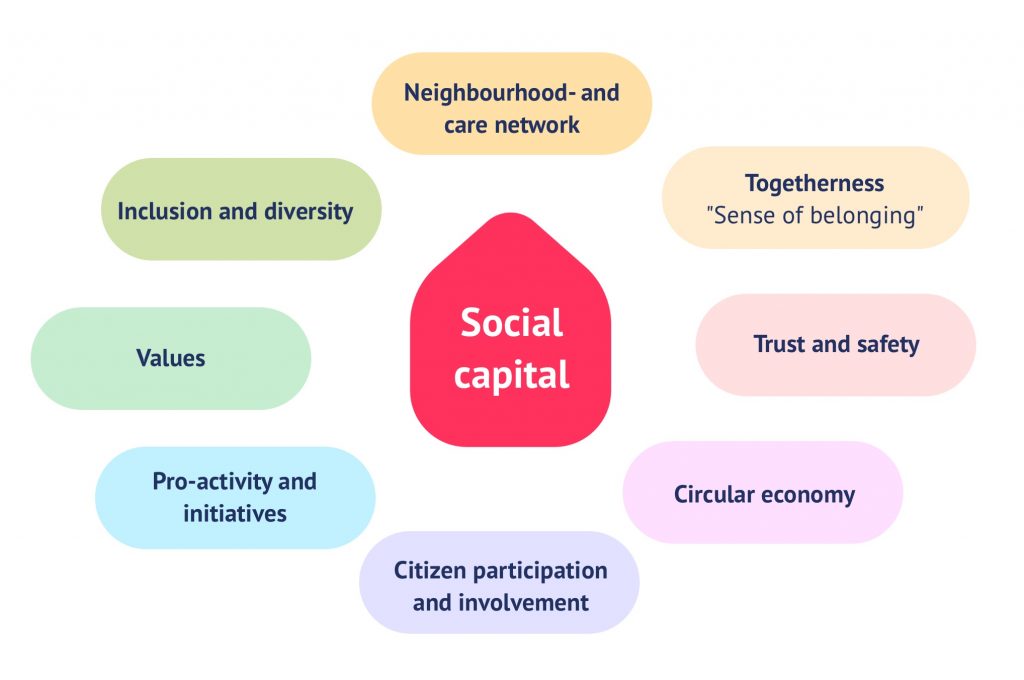Meet citizen engagement expert Dr Jonas De Meulenaere
This year, Hoplr has been working on the expansion of the knowledge centre. This is based on three pillars: neighbourhood communication, neighbourhood care and citizen engagement. In order to scientifically substantiate our functionalities and support in regards to citizen engagement, Dr. Jonas De Meulenaere joined the team this summer. In this article, we talk about his experience and role within the team.
Click here to jump straight to ‘How Jonas will help local governments’.
Short biography

Jonas holds a Master’s degree in communication sciences from Ghent University (2010). After graduating, he started working as a researcher at the Free University of Brussels. There, he was a member of the research group iMinds-SMIT. He contributed to several iMinds research projects that focused on new audiovisual technologies in both professional and domestic contexts. In 2014, Jonas returned to Ghent University as a teaching assistant, where he joined the imec-MICT research group and started his PhD.
Doctorate ‘Online Neighbourhood Networks’
Jonas first came into contact with Hoplr when he was doing research for his doctorate (which he obtained in March 2020). In it, Jonas investigated the communicative dynamics of online neighbourhood networks, their role in local community building and the exchange of social support between neighbours. Among others, the PhD showed the following insights:

1. Interacting with neighbours and learning about each other and the neighbourhood
Online neighbourhood networks form hubs where residents digitally meet, ask questions and debate. However, because the interactions are visible to both those directly involved and a wider audience, it is also a way to learn about the neighbourhood and each other.
In other words, online neighbourhood networks function as a local social news medium that allows for observational learning.
2. A local sense of community, online and offline
Both actively sharing information and passively reading along, contribute to the development of a local sense of community. This primarily affects the online environment.
However, this has a spill-over effect on the neighbourhood as well, as members of the online neighbourhood network are actual neighbours. This implies that online formed relationships also exist in the ‘real’ neighbourhood. Developing an online sense of community therefore enhances the neighbourhood’s sense of community.
3. A rapidly mobilizable network for users, organisations and governments
The digital neighbourhood network can be used to ask for help and participate in local events. We’ve seen that a majority of the network’s messages are help requests. This allows users to reach a network of neighbours that transcends their own local social network.
Online neighbourhood networks thus bridge the neighbourhood’s individuals and interpersonal networks, which positively affects its collective functioning.
In conclusion, online neighborhood networks allow neighborhood residents to develop an affective relation with a network of neighborhood residents which in turn provides access to neighborly help. Based on these findings, we argue for a cooperation between private platform owners and public institutions in maintaining these online semi-public environments, whereby skill, knowledge and other resources should be allocated to producing socially desirable outcomes.
De Meulenaere, J. (2020). Online neighbourhood networks: a multi-perspective inquiry into emergent community construction. Ghent University. Faculty of Political and Social Sciences, Ghent, Belgium.
Study Corona
While doing research for his PhD, Jonas had crossed paths with Hoplr several times. It wasn’t until the beginning of 2020 however, that Jonas called on Hoplr to collaborate. As a Senior Researcher at Ghent University, Jonas wanted to study the extent to which local interactions and connectedness contribute in crisis situations such as the corona crisis.
For the research, the University of Ghent used the surveying functionalities of Hoplr’s Service Dashboard. This way, the research group could easily inquire 8,586 people from 250 random Flemish neighbourhoods in just nine days.

Drs Waeterloos, Dr De Meulenaere, Prof Walrave and Prof Ponnet published the report at the end of May entitled (translated) ‘Citizen engagement and social support during the corona crisis: Findings from a survey study in Belgium from 8-17 May 2020 ′.
Hoplr seems to play a facilitating role in setting up citizen initiatives during the corona period, as a platform to promote local goods and social support. For example, about a fifth of respondents indicated that they had already used Hoplr to provide help or services during the corona crisis. In addition, respondents with a lower education level and income seem to offer help through Hoplr and encourage others to follow measures more often than others.
Waeterloos, C., De Meulenaere, J., Walrave, M., & Ponnet, K. (2020). Citizen participation and social support during the corona crisis: Findings from a survey study in Belgium from 8-17 May 2020. Ghent: University of Ghent.
These fruitful collaborations, a shared love for community building and Hoplr’s vision to develop its knowledge centre, led to this newest addition to Team Hoplr.
This is how Jonas is going to support local governments
Jonas De Meulenaere will mainly be taking on the following three pillars within Hoplr.
Guidance citizen engagement projects
Depending on their license, customers can freely call on our team of experts. Jonas is more than capable to take their citizen engagement projects, surveys, citizen budgets, offline workshops,… to the next level.
As an academic, he has loads of experience with the many challenges of an inquiry: targets, objective questioning, representativeness and the processing of results.
Impact analysis
We conduct an annual impact analysis to track the evolution of Hoplr’s impact within your local communities. Jonas helps you determine which of the social capital’s eight dimensions best suit your ambitions with Hoplr. Together, we’ll draw up a number of measurable indicators.

Citizen Engagement Knowledge Centre
Hoplr prides itself on working closely with all of its customers. Our team is committed to supporting every single one of them: already more than hundred local governments. We provide them with documentation, information sessions, monitoring, on-site training, content, brainstorming sessions, promotional material,…
Not only do we hope this to have created value for our customers; we ourselves have learned an awful lot from these local governments. We bring along years of experience in community building, citizen participation, neighbourhood communication and care with every new collaboration. Jonas, together with a number of colleagues, works on the collection and dissemination of this knowledge.
Jonas De Meulenaere is the third Jonas to join the Hoplr team. This means that 27% of Hoplr consists of Jonasses.






